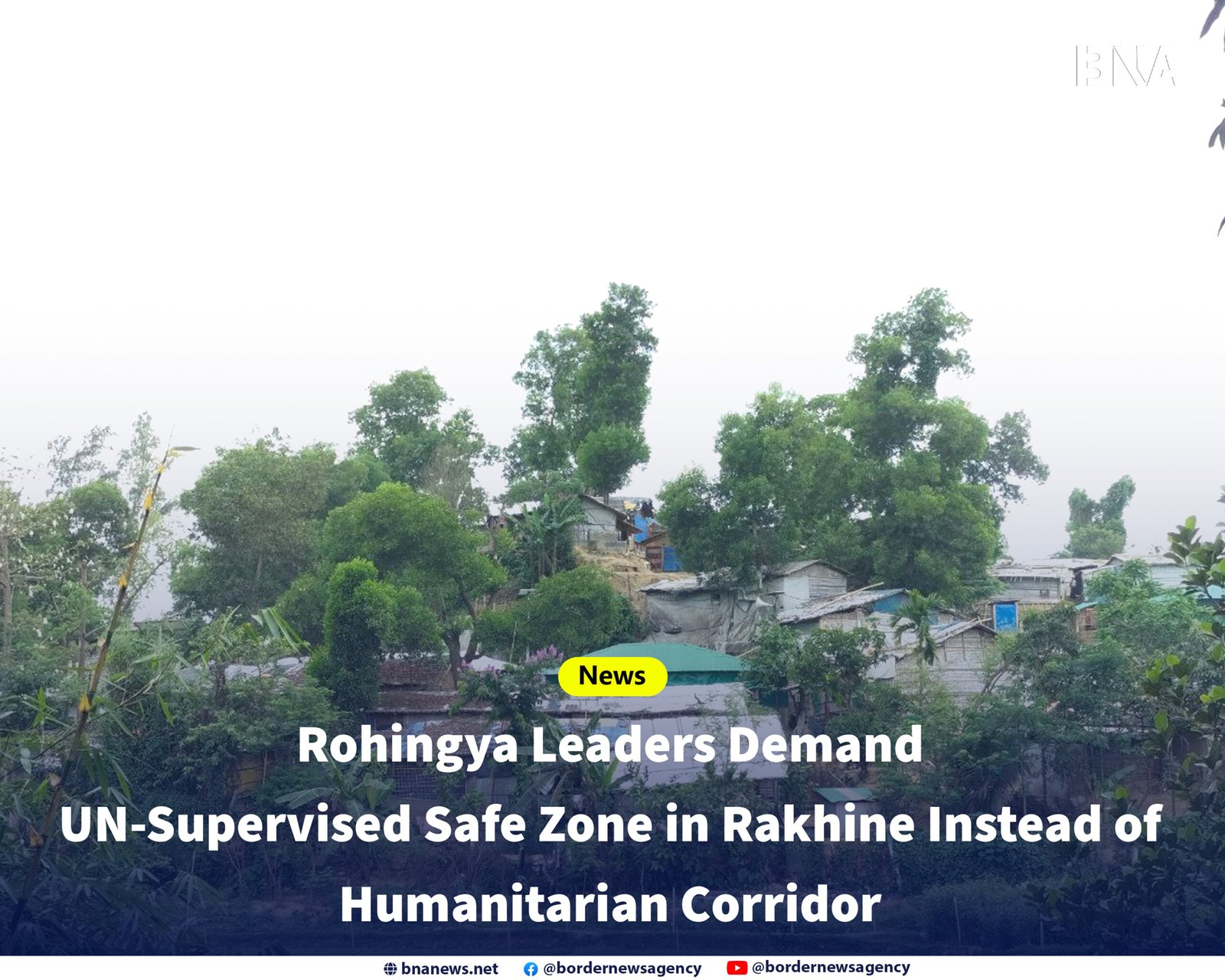Border News Agency
Cox’s Bazar | May 9, 2025
Rohingya community leaders in the refugee camps of Cox’s Bazar have called for the creation of a United Nations-supervised safe zone in Myanmar’s Rakhine State, arguing it is the only viable solution to ensure their safety and long-term return home. The demand comes amid growing discussions about establishing a humanitarian corridor to deliver aid across the Bangladesh-Myanmar border.
Speaking to local media and civil society groups, several Rohingya representatives voiced concern over the idea of a humanitarian corridor, warning that it would not address the root causes of the crisis or provide protection to displaced Rohingya who are caught between the Myanmar military and the Arakan Army (AA).
“We are not safe under the junta or the Arakan Army. A humanitarian corridor may bring food, but it will not bring justice or protection. What we need is a safe zone monitored and protected by the United Nations,” one Rohingya leader said.
Rohingya civil society members also questioned why such proposals are being discussed without consulting the community itself. “Any decision about Rakhine or repatriation must include Rohingya voices. Otherwise, it will not be sustainable,” said a camp-based activist.
The call for a safe zone comes at a time when the AA has taken control over large parts of Rakhine State, following intense clashes with Myanmar’s military. The volatile situation has led to renewed displacement, and fears are growing over a humanitarian catastrophe. The United Nations has warned of a potential famine and urged Bangladesh to allow cross-border aid to reach affected areas.
On April 27, Bangladesh’s Foreign Affairs Adviser Md Touhid Hossain said that the government had made a policy decision in support of the humanitarian corridor. However, National Security Adviser Khondker Golam Mohiuddin later appeared to express a different stance, reflecting internal debate within Dhaka over the issue.
Meanwhile, Rohingya voices continue to call for a more durable and rights-based solution. “We want to go home with dignity, but we cannot return without safety, citizenship, and justice. A safe zone under the UN can be the first step,” said another Rohingya elder.
The demand adds to growing pressure on international stakeholders to rethink approaches to resolving the protracted Rohingya crisis.






